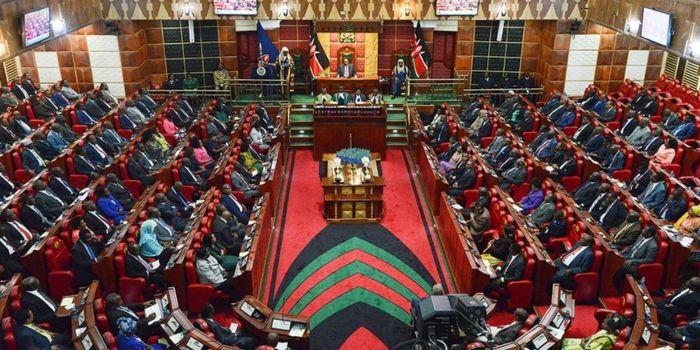Opposition Pushes for Recall of MPs Who Supported Controversial Finance Bill 2024
The opposition faction urges Kenyans to recall all Members of Parliament who supported the contentious Finance Bill 2024.
Opposition-affiliated parties such as the Orange Democratic Movement Party (ODM) and Wiper Party have indicated plans to start procedures to recall MPs who backed the bill.
ODM Secretary-General, Edwin Sifuna, announced on Thursday that the party will challenge those who voted in favor of the bill.
During the second reading, 115 National Assembly members opposed the Finance Bill, while 204 supported it, moving it to the committee stage.
But what is required to recall a Member of Parliament?
Recalling a Member of Parliament has been challenging in Kenyan politics. It’s often discussed but rarely executed due to procedural complexities in the Constitution and Elections Act.
Political parties lack effective structures to recall MPs. The power resides solely with the voters.
The Constitution of Kenya 2010, Article 104, grants voters the right to recall an MP.
Article 104, clause (1), states: “The electorate under Articles 97 and 98 have the right to recall the member of Parliament representing their constituency before the end of the term of the relevant House of Parliament.”
The Article also allows parliament to legislate the grounds and procedures for recalling a member.
ALSO READ:
- Donald Trump Accused of Rape in Newly Released Epstein Files; DOJ Calls Claims ‘Untrue and Sensationalist’
- Martha Karua Warns: Ruto’s Government on Borrowed Time After Raila Odinga’s Death
- Strange Deaths in Nairobi’s Kilimani in 2025 Where Victims Fell Off High-Rise Buildings
- Tragic Night on Kenyan Roads: Former Chief Justice’s Campaign Team Involved in Accident
- Coup Leader Expected to Stay in Power in Guinea Presidential Vote
Some procedural steps established by Parliament and the Elections Act include:
An MP can be recalled for four reasons: gross constitutional violations, election law offenses, gross misconduct, and public funds misappropriation.
The law states, “A recall of a Member of Parliament shall only be initiated upon a judgment or finding by the High Court confirming the grounds of violation of provisions of Chapter Six of the Constitution, mismanagement of public resources, and or conviction for an offense under the Elections Act.”
Recall Stages:
The petitioner (registered voter) gathers signatures from at least 30 percent of registered voters in the constituency, including at least 15 percent from at least half of the constituency’s wards.
The petitioner submits the signatures and a list of grounds for recall to the Independent Electoral and Boundaries Commission (IEBC).
The IEBC verifies and validates the signatures. If the petition meets the requirements, the electoral body notifies the MP, who can then respond.
The IEBC informs the Speaker of the National Assembly within 15 days to start the recall process.
If upheld, the commission will hold fresh elections within 90 days of verifying the petition.
Opposition Pushes for Recall of MPs Who Supported Controversial Finance Bill 2024
